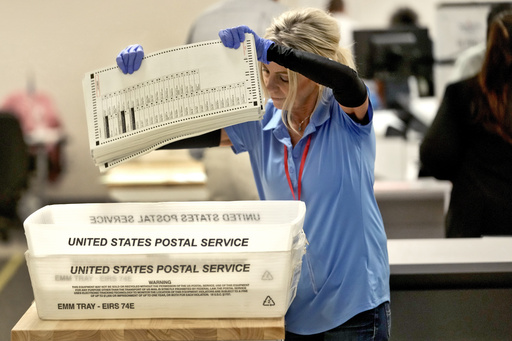
In an effort to address the increasing polarization across the United States, a significant national initiative is advocating for the modification of partisan primary systems in six states. The campaign seeks to revamp the electoral process by transitioning to nonpartisan primaries or implementing ranked choice voting. This movement, backed by an estimated $70 million from Unite America, aims to redefine political engagement and empower a more diverse segment of voters beyond the staunch party loyalists.
During a recent debate in Denver regarding the proposed changes, Kent Thiry, co-chair of Unite America and former CEO of DaVita Inc., emphasized the urgent need for reforms, stating, “People are losing faith in democracy itself.” Unite America’s executive director, Nick Troiano, noted that a remarkable 85% of congressional seats are virtually won during partisan primaries, as a result of districts being skewed towards either the Democratic or Republican parties. This means that candidates often face little to no competition in the general elections, leading to an unresponsive political establishment.
Troiano highlighted that many Republican representatives who supported overturning the 2020 election results were from uncompetitive districts, allowing them to cater exclusively to their party’s base. Supporters of the campaign believe this year is critical for structural reforms, with insights shared by Edward Foley, a law professor at Ohio State University, who believes the current climate makes these changes more necessary than ever.
However, some critics express skepticism about the potential impact of switching from partisan to nonpartisan primaries. They argue that the deep-rooted ideological divides within communities will continue to result in the election of candidates who align with these extremes, regardless of how primaries are structured. Lee Drutman from the New America Foundation articulated concerns that these reforms may complicate the political landscape without effectively addressing polarization.
The proposed ballot measures aim to replace the traditional primaries with ranked choice voting in states that lean heavily Democratic, like Colorado, as well as in states like Idaho and South Dakota, which are predominantly Republican. Swing states, including Arizona and Montana, are also considering a nonpartisan primary approach. Notably, in Oregon, an initiative would allow parties to continue conducting their own primaries while implementing ranked choice voting for certain key statewide elections. This movement coincides with an unusual number of voting-related measures appearing on ballots across the country this November.
Ranked choice voting has gained attention as a method that could provide a more representative outcome by enabling voters to rank their preferences among candidates. This system eliminates the candidate with the fewest votes and reallocates their votes to the remaining candidates based on voter preferences until one candidate secures a majority. Currently, this voting method is utilized in a limited capacity in states like Alaska and Maine, as well as in several cities, including New York and San Francisco. This approach notably allowed Democrat Mary Peltola to win Alaska’s sole congressional seat in 2022, resulting in backlash from many Republican activists who have since sought to ban ranked choice voting in GOP-led states.
Opponents of the campaign assert that efforts to reform party primaries aim to dilute the influence of committed ideologues. Jason Lupo, a conservative strategist, suggested such changes would promote centrism at the expense of stronger party convictions, asserting that they could marginalize both progressives and conservatives. Critics also warn that as apprehensions about the integrity of elections grow, particularly among conservative voters due to previous unfounded claims of voting fraud, the proposed reforms could exacerbate distrust in the electoral system.
Nevertheless, advocates for the initiatives stress the essential need for change. Chuck Coughlin, a Republican strategist from Arizona, shared his frustrations about not being able to participate in multiple primaries due to party restrictions, leading him to support Unite America’s vision for an open primary system. Unite America aims to enhance the political landscape by promoting the voices of moderates and independents, reflecting a growing discontent with the current partisan climate.
The organization has garnered substantial support, including from prominent figures such as Kathryn Murdoch and Kenneth Griffin, furthering its capacity to influence electoral processes. However, opposition groups keenly highlight the funding sources for these initiatives, articulating concerns that propelling such changes would predominantly benefit wealthy candidates. Sean Hinga, a labor leader vocal against the Colorado initiative, criticized the motivation behind the campaign, asserting, “It’s not the type of people I want writing my election law.”
